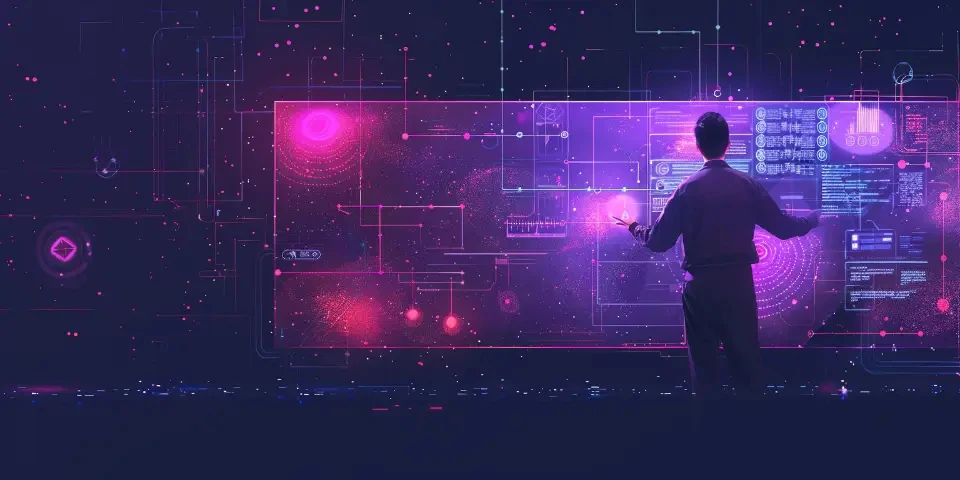Master the Art of Chord Progressions with AI Unlocking Your Musical Potential
Music has the power to evoke emotions, tell stories, and create lasting memories. At the heart of any great song lies a well-crafted chord progression. Whether you are a professional musician or an aspiring composer, understanding chord progressions is key to unlocking your musical potential. Thanks to advancements in artificial intelligence (AI), mastering the art of chord progressions has become more accessible and exciting than ever before. In this article, we will explore the various ways in which AI can aid musicians in creating compelling chord progressions, providing a new avenue for creativity and inspiration.
The Power of AI in Music Composition
1. AI-Driven Chord Suggestions

One of the biggest challenges for musicians is finding the right chords that harmonize well together. AI-powered music software, such as "ChordAI" or "HarmonyBot" can analyze melodies and provide intelligent chord suggestions based on established music theory. These tools save valuable time by eliminating the need for trial and error, allowing musicians to focus on the creative process.
2. Automatic Harmonization
In addition to suggesting chords, AI can also automatically harmonize melodies. By analyzing the melodic structure, rhythm, and tonality, AI-powered software can generate harmonies that complement the melody seamlessly. This feature opens up new possibilities for musicians to experiment with harmonizations they may not have considered otherwise.
Breaking the Boundaries of Traditional Chord Progressions
3. Exploring Unconventional Chord Progressions
Traditional chord progressions can sometimes feel predictable and formulaic. However, with AI software, musicians can break free from the constraints of convention and explore unconventional chord progressions. By training AI models on vast music databases from various genres, these tools can suggest unique progressions that challenge traditional norms, injecting fresh ideas into your compositions.
4. Blending Genres and Styles
AI-powered music composition tools are not limited to a single genre. They can analyze and blend multiple genres, creating hybrid chord progressions that push the boundaries of musical experimentation. Imagine fusing the soulful chords of jazz with the rhythmic patterns of electronic music?the possibilities for innovation are limitless.
The Collaborative Potential of AI in Music
5. Virtual Bandmates
Collaborating with other musicians can be challenging, especially when they are not physically present. However, AI tools can be programmed to simulate the playing styles of specific instruments or artists, effectively acting as virtual bandmates. These virtual bandmates can contribute their own chord progressions and ideas, enhancing the overall composition and bringing new dynamics to your music.
6. Real-time Feedback
Receiving instant feedback while composing can greatly improve the creative process. AI music software, equipped with machine learning algorithms, can analyze your chord progressions in real-time and provide suggestions or highlight areas that might benefit from further exploration. This real-time feedback loop accelerates the learning curve and leads to more refined compositions.
Addressing Common Questions
7. Is using AI in music composition considered cheating?
No, using AI as a tool in music composition is not considered cheating. Instead, it should be seen as a powerful ally that aids in the creative process, providing inspiration, suggestions, and innovative ideas that might not have been discovered otherwise.
8. Can AI completely replace human creativity in music?
No, AI cannot replace human creativity in music. While AI can assist in generating ideas and providing suggestions, the true essence of music lies in the human emotions and experiences behind it. AI should be viewed as a complementary tool that amplifies human creativity rather than replacing it.
Unlock Your Musical Potential with AI
9. AI-powered Music Production Software
In addition to chord progression assistance, AI has revolutionized music production by offering software that can automatically generate accompanying melodies, basslines, and drum patterns. These tools enable musicians to quickly build full compositions and unleash their creativity without being limited by technical constraints.
10. Online Platforms for Collaborative Composition
Several online platforms have emerged that allow musicians from around the world to collaborate on the same project in real-time. These platforms utilize AI algorithms to synchronize and harmonize chord progressions, enabling seamless collaboration regardless of geographical boundaries.
The Future of Music Composition is Here
11. AI vs. Human Creativity: Finding the Balance
As AI continues to make advancements in music composition, the ongoing debate surrounding the role of AI in music creation will persist. However, instead of viewing AI as a threat, musicians should embrace its potential as a tool that can inspire and augment their creative capabilities.
12. A Paradigm Shift in Music Education
The integration of AI in music education has the potential to transform the learning experience. AI-powered learning platforms can create personalized curricula, analyze students' progress, and offer tailored suggestions for improvement, catering to individual learning styles and maximizing musical growth.
With the world of AI rapidly evolving, the music industry is experiencing a revolution. Musicians now have unprecedented access to tools and technologies that can enhance their creative journey. By incorporating AI into their workflow, musicians can unlock their full potential, push the boundaries of musical expression, and create compositions that resonate deeply with audiences worldwide.
Explore your companion in WeMate